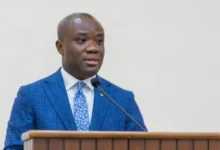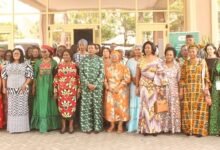Nationwide anti-malaria campaign: 30m mosquito nets to be distributed from April

As part of the country’s malaria pre-eradication drive, the Ghana Health Service (GHS) is to distribute 30 million Long-Lasting Insecticide Nets (LLINs) across the country.
The door-to-door distribution and hang-up mass nationwide campaign to be implemented by the National Malaria Control Programme (NMCP) and its partners will begin in April this year starting from the Northern, Upper East, North East and Savannah regions.
Mr Christian Atta-Obeng of the Vector Control Unit of the National Malaria Control Programme (NMCP) said it forms part of NMCP’s 2021- 2025 strategic plan to reduce malaria cases to 50 per cent and also reduce malaria deaths by 90 per cent.
Speaking via a virtual meeting with members of the Ghana Malaria Media Coalition organised by the Africa Media Malaria Network (AMMREN) in Accra, on Monday, Mr Atta-Obeng said malaria was endemic throughout the country putting the population at risk of infection hence the mass exercise.
Making a presentation on Malaria Vector Control in Ghana, he said LLINs was one of the vector control tools for the estimated 16 million households using the universal coverage principle (one net for two persons in a household).
It is against the backdrop that the mass registration exercise will start on April 7, and was hopeful that Ghanaians would avail themselves with the opportunity to get registered when the team contacted them at home.
He said to ensure the flexibility efficiency of the process, an App had been developed for use by the registration officers for effective delivery.
Mr Atta-Obeng said this time round the bed nets would no longer be distributed from schools, clinics, health facilities and other public places but rather into registered households.
That, according to him, was to ensure that no one was left out in the LLINs ownership and usage.
He urged Ghanaians to sleep under the nets to protect themselves from the malaria disease saying based on complaints of heat, manufacturers of the nets had improved on the quality so that the issue will no longer arise.
The Executive Secretary of AMMREN, Dr Charity Binka, moderated the Programme and said the coalition has visited a number of media houses to get the editors and media houses to buy into the malaria control agenda.
She expressed gratitude to the editors for their assurance to give prominence to malaria articles presented to them by their reporters.
She announced that plans were far advanced to institute an award scheme every year to recognise and reward journalists who excel in reporting on malaria issues.
BY NORMAN COOPER







